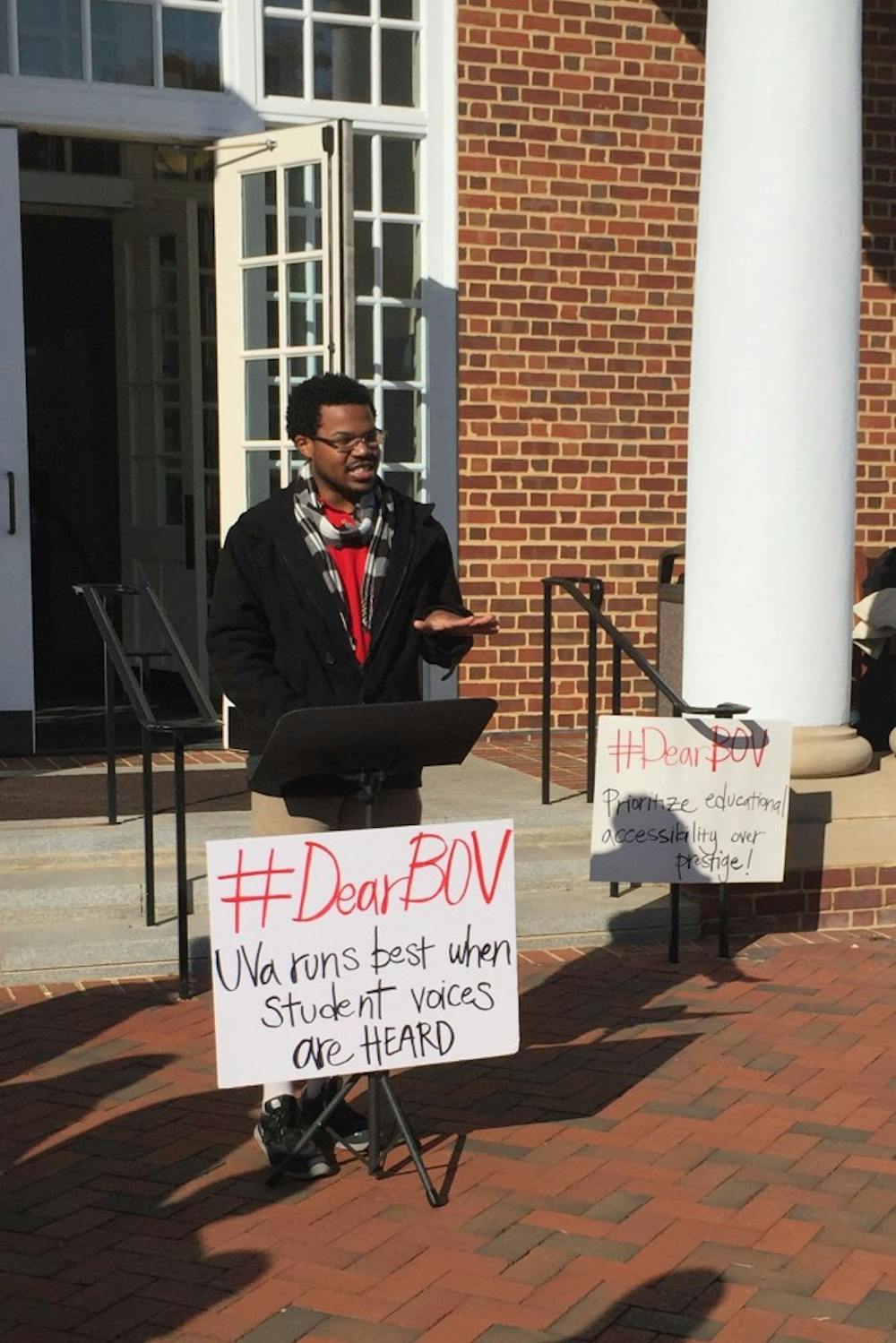University students and Charlottesville community members gathered Friday outside of the Board of Visitors meeting to hold a mock public commentary called #DearBOV to advocate for a public comment period during Board meetings.
Though the Board’s meetings are accessible to the public, they do not allow for public comment.
The protest was organized by U.Va. Students United, a student group which published an open letter in October to the Board calling for two 90 minute public comment periods. During the proposed comment period, speakers would sign up in advance and address the Board directly in five minute time slots.
Fourth-year College student Tina Mensa-Kwao said U.Va. Students United strives for a more inclusive and democratic university environment.
“Dear BOV, we need a public comment period,” Mensa-Kwao said. “Dear BOV, students’ voices are important.”
At Friday’s meeting, Board Rector George Martin acknowledged the protesters’ concerns and said the Board would look into the issue.
“I’ve referred that issue to the Governance and Engagement Committee for study, with the idea that they will report back to us with a recommendation at our February meeting,” Martin said.
Even considering fourth-year College student Meg Gould’s position as student member of the Board, second-year College student Ibby Han said one non-voting Board member is not enough to represent the voices of University students.
“This event is our own public comment period because the Board hasn’t yet established one,” Han said. “Students need to have input on the issues that the Board is deciding on because these issues directly affect us.”
Protesters spoke out on a variety of issues on which they felt the Board should act. Third-year College student Kelly Carson said the University should invest more in strengthening diversity.
“We talk about diversity and inclusion here at this public university, but Virginia is 19 percent African-American, Virginia is 8.6 percent Hispanic — U.Va is not,” she said. “I demand that we increase investment in the Office of Admissions so we can expand our student body.”
Carson also requested the University increase socioeconomic diversity.
“We also demand better funding for AccessUVa, a program that allows many low socioeconomic people and minority students to reach the University,” Carson said.
Fourth-year Education student Ryland Richardson said the University needs to re-evaluate its effect on the Charlottesville community.
“As one of my teachers told me one time: ‘What does it mean to tutor a child in the Charlottesville community programs who has to go home to poverty because their parent works for the University of Virginia?’” Richardson said.
Second-year College student CJ Hillyard said though University students may be able to voice their concerns in demonstrations like the #DearBOV protest, University workers have no such outlet.
“While we students at least can communicate with Board members indirectly to express our concerns and do so without fear of retaliation, the workers here have no such avenues or protections,” Hillyard said. “As a right-to-work state and with the ongoing assaults on collective bargaining, the workers here also lack a union to use as a voice to address common grievances.”
In their open letter to the Board, U.Va. Students United said a public comment period, much like the one they held Friday, would uphold the established value of student self-governance at the University.
After the protest, students carried signs reading “prioritize educational accessibility over prestige” and “U.Va. runs best when student voices are heard” into the Special Collections Library and observed the Board meeting.







